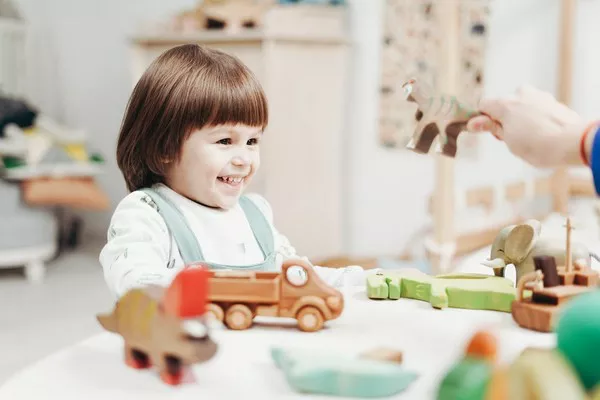The miracle of childbirth is an awe-inspiring event, full of countless milestones and wonders. Among the many incredible developments that occur in a newborn’s life, the sense of hearing holds a special place. From the soothing lullabies to the comforting voices of loved ones, sound shapes our lives in profound ways. In this article, we will explore the fascinating journey of a newborn’s auditory system and delve into when exactly their ability to hear emerges.
The Development of the Auditory System:
To comprehend the timeline of when newborns start hearing, it is crucial to understand the intricate process of auditory system development. The foundation of this system begins early in the embryonic stage. By the 18th week of gestation, the structures responsible for hearing, such as the inner ear and the auditory nerve, are already forming. However, it is only after birth that these structures mature and the journey of auditory exploration truly begins.
The First Auditory Experiences:
During the first few weeks of life, newborns undergo significant adjustments as they adapt to their new environment. Their primary focus is on establishing their senses, and hearing plays a vital role in this process. While some studies suggest that newborns may be able to perceive sound to some extent from as early as 20 weeks of gestation, it is after birth that their hearing truly blossoms.
Around the 25th week of gestation, the cochlea, a spiral-shaped organ responsible for converting sound vibrations into electrical signals, becomes fully formed. After birth, newborns are capable of hearing a wide range of sounds, including voices, music, and environmental noises. It is important to note that their hearing ability may not be as refined as that of adults and may still be developing.
Understanding Infant Auditory Response:
One of the ways researchers assess newborns’ hearing ability is through various auditory tests, such as the otoacoustic emissions (OAE) test and the auditory brainstem response (ABR) test. These tests measure the presence of sound-evoked responses in the cochlea and brainstem, respectively. By conducting these tests, healthcare professionals can determine if a newborn has any hearing impairments or if further evaluation is necessary.
Newborns often display observable responses to sound stimuli. For instance, they may startle, visibly react, or momentarily stop their activities when exposed to loud or unexpected noises. Additionally, they are more likely to turn their heads or focus their gaze toward a sound source. These natural responses indicate that newborns are beginning to process and recognize sounds in their surroundings.
The Role of Familiar Voices and Early Sound Experiences:
While newborns can hear a variety of sounds, their response to familiar voices, particularly those of their parents or caregivers, is often more pronounced. Infants have a remarkable ability to recognize the voices they heard in utero. Research suggests that the rhythmic patterns and melodies of the maternal voice provide a sense of comfort and familiarity to the newborn, soothing and calming them during their early stages of development.
Parents and caregivers can actively engage in nurturing their newborn’s auditory development by exposing them to a diverse range of sounds. Talking, singing, and reading aloud are all powerful ways to stimulate a newborn’s hearing abilities. The use of gentle, melodic tunes and lullabies can enhance their auditory experiences and create a nurturing environment for language acquisition and cognitive development.
Conclusion:
The journey of hearing development in newborns is a captivating process that begins before birth and continues to unfold in the months and years to come. While newborns are born with the ability to hear, their auditory system is still maturing, and their response to sound evolves over time. By recognizing and embracing the importance of early auditory experiences, parents and caregivers can foster a rich and nurturing soundscape for their newborns, setting the stage for a lifelong appreciation of the symphony of life.


